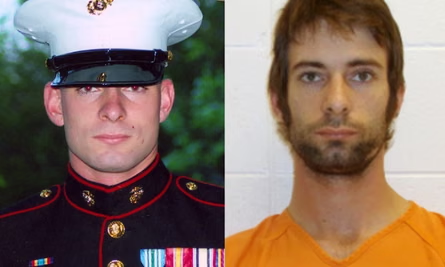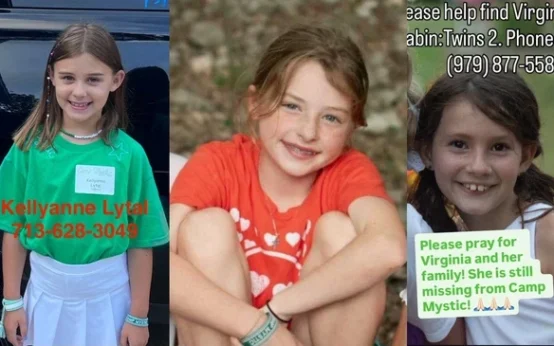Chris Kyle’s name is one of the most recognized in modern American military history. Known as the American Sniper, Kyle became a household name through his autobiography and the Clint Eastwood film adaptation starring Bradley Cooper. His life story was inspiring, but his death in 2013 shocked the world. It wasn’t on a battlefield overseas but at a Texas gun range that Kyle lost his life — an end as tragic as it was haunting.
In this deep dive, we explore not only the circumstances of Chris Kyle Death but also his legacy, the trial that followed, and the lasting cultural impact. Along the way, we’ll highlight the larger conversations his story continues to fuel — from veteran mental health to how media shapes narratives around military heroes.
Who Was Chris Kyle? From Small-Town Boy to American Sniper
Chris Kyle was born on April 8, 1974, in Odessa, Texas. Growing up, he developed a love for hunting and the outdoors, which would later translate into his career as one of the most effective snipers in U.S. military history. Before enlisting, Kyle worked as a ranch hand and rodeo cowboy — but after a recruiter convinced him to try out for the Navy SEALs, his path changed forever.
Kyle completed the notoriously brutal Basic Underwater Demolition/SEAL training (BUD/S) and became a member of SEAL Team 3. He went on to serve four tours in Iraq, participating in pivotal battles in Fallujah, Ramadi, and Baghdad.
His military record lists 160 confirmed kills, though Kyle himself suggested the number was higher. He was both feared by enemies and respected by allies, earning nicknames like “The Devil of Ramadi.”
American Sniper: Fame and Controversy
In 2012, Kyle published American Sniper, his memoir detailing his time as a Navy SEAL. The book became an instant bestseller, praised by many for its raw honesty and military insight.
By 2014, Clint Eastwood’s film adaptation brought Kyle’s story to an even wider audience. Bradley Cooper’s portrayal earned Oscar nominations, and the movie grossed over $500 million worldwide. Yet with fame came controversy — critics debated whether Kyle was a patriotic hero or a symbol of the darker realities of war.
Life After the Military
Leaving the SEALs in 2009, Kyle shifted focus to helping veterans transition back into civilian life. He co-founded a security training company and dedicated time to supporting those struggling with PTSD.
Friends described him as deeply committed to veterans’ causes. He often spent weekends volunteering, coaching, and even taking former soldiers out for therapeutic shooting sessions. That commitment — tragically — put him in the path of danger on the day of his death.
The Day of Chris Kyle Death
On February 2, 2013, Chris Kyle and his friend Chad Littlefield took a former Marine, Eddie Ray Routh, to a shooting range at Rough Creek Lodge in Texas.
Routh’s mother had asked Kyle for help, hoping that Kyle’s mentorship could aid her son’s struggles with mental health. Unfortunately, what began as an act of compassion ended in tragedy.
During the visit, Routh turned on Kyle and Littlefield. Armed with guns from Kyle’s truck, he shot both men at close range. Witnesses later confirmed that neither Kyle nor Littlefield had managed to draw their weapons in time.
The Murder Trial of Eddie Ray Routh
Routh fled the scene in Kyle’s truck but was arrested shortly after. In police custody, he confessed to the killings but claimed he acted out of paranoia and fear.
At trial in 2015, Routh’s defense team argued that he suffered from schizophrenia and PTSD. They sought an insanity defense, pointing to years of psychiatric treatment. However, prosecutors argued that Routh knew right from wrong and was responsible for his actions.
After a tense courtroom battle, Routh was found guilty of capital murder and sentenced to life in prison without parole.
Public Mourning: The Hero’s Farewell
Chris Kyle’s funeral was unlike anything Texas had seen. His casket was placed in AT&T Stadium, home of the Dallas Cowboys, where tens of thousands of mourners gathered to pay their respects.
A two-mile procession followed, with people lining the highways to salute the fallen SEAL. His burial at the Texas State Cemetery cemented his place as one of the state’s most honored sons.
Taya Kyle: Carrying the Legacy
Chris Kyle left behind his wife, Taya, and their two children. Taya has since become an outspoken advocate for military families and veterans.
She authored American Wife, her memoir about life with Chris and the challenges she faced after his death. Through the Taya and Chris Kyle Foundation, she continues to provide support to veterans and first responders, keeping his mission alive.
Controversies Around Chris Kyle’s Story
Even after his death, debates swirl around Kyle’s legacy. Some critics point to inconsistencies in his accounts of military service and question certain anecdotes in his book. Others argue that American Sniper glamorizes war.
Still, for many, Kyle symbolizes courage, sacrifice, and patriotism. His supporters argue that regardless of politics, his service saved countless lives on the battlefield.
Chris Kyle Death and the Mental Health Conversation
Kyle’s murder also spotlighted the struggles of veterans dealing with PTSD and mental illness. Eddie Ray Routh’s instability raised pressing questions:
- Could his actions have been prevented with better psychiatric care?
- Are veterans receiving enough post-service support?
- How should society balance compassion with safety when mental illness is involved?
The tragedy underscored the urgent need for more robust mental health services, both for combat veterans and civilians.
Cultural Impact: From Hero to Legend
Chris Kyle death transformed him from a military figure into a cultural legend. His story has been used in political debates, films, documentaries, and even in discussions about gun culture in America.
The Clint Eastwood-directed American Sniper only amplified this legacy, immortalizing Kyle as both hero and controversial figure.
Comparing Chris Kyle’s Story to Other Tragic Headlines
Stories like Kyle’s remind us how fragile life can be — even for those trained for combat. In some ways, the shock and media frenzy echoed other mysterious and tragic cases, such as the widely discussed Camp Mystic Missing Girls.
While the circumstances differ, both stories show how tragedy, unanswered questions, and media coverage can dominate the public imagination.
What Chris Kyle Death Teaches Us in 2025
More than a decade later, Chris Kyle death still resonates. It continues to inspire books, podcasts, films, and debates.
- For veterans, it highlights the importance of support systems after service.
- For families, it’s a reminder of the unseen struggles soldiers face.
- For society, it poses difficult questions about guns, mental health, and how we define heroism.
FAQs About Chris Kyle Death
1. How did Chris Kyle die?
He was shot and killed at a Texas shooting range on February 2, 2013, by Eddie Ray Routh, a former Marine.
2. Who else died that day?
Kyle’s close friend, Chad Littlefield, was also killed in the attack.
3. Was Eddie Ray Routh convicted?
Yes. In 2015, he was found guilty of capital murder and sentenced to life in prison without parole.
4. Did Chris Kyle have children?
Yes. He and his wife Taya had two children.
5. What happened to Taya Kyle after his death?
She became an author, speaker, and founder of a veterans’ support organization.
Final Thoughts: Remembering Chris Kyle
Chris Kyle death was not only a tragedy for his family but also for the nation that revered him as a hero. While his story remains complicated — blending valor, controversy, and cultural symbolism — his legacy continues to shape how we think about war, veterans, and sacrifice.
More than a decade later, Kyle’s memory endures as both a cautionary tale and a source of inspiration.
Suggested Internal Reads on pampsun.com
- Camp Mystic Missing Girls – another story that gripped headlines and raised deep questions.
- Joshua Jackson – exploring the actor’s evolving career and personal life.
- Mike Wolfe Passion Project – a look at the American Pickers star’s creative side.

 Camp Mystic Missing Girls: The Truth Behind the Viral Mystery
Camp Mystic Missing Girls: The Truth Behind the Viral Mystery  Who Called from 18063011929? Unveiling the Mystery Behind This Number
Who Called from 18063011929? Unveiling the Mystery Behind This Number  Meet the Press S76E49: Essential Highlights and In-Depth Analysis
Meet the Press S76E49: Essential Highlights and In-Depth Analysis  Coelocaliente for Beginners: A Guide to Its Flavor and Versatility
Coelocaliente for Beginners: A Guide to Its Flavor and Versatility